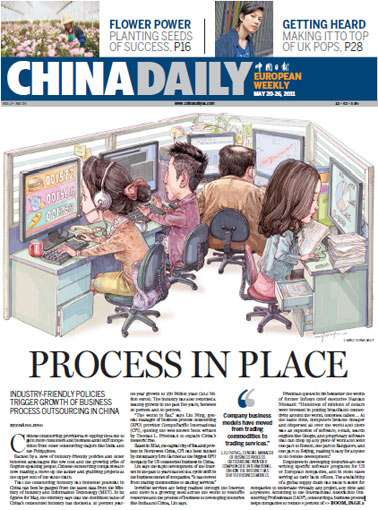Art
A festival for the ages
Updated: 2011-05-14 07:28
By Lin Shujuan (China Daily)
|
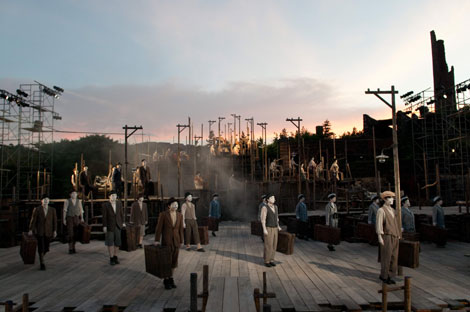 When a Gray Taiwanese Cow Stretched, an outdoor stage performance by Japan's award-winning company Ishinha, opens the 20-day Singapore Arts Festival on Friday. Photos provided to China Daily |
The Singapore Arts Festival has a particularly ambitious program this year, based on the evolution of the city state from its South Fujian origins. Lin Shujuan reports.
Singaporean Low Kee Hong's great grandfather came from Fujian province. While Low can speak Chinese, Cantonese and English, he doesn't understand Minnan dialect, or Southern Fujian dialect, the tongue of his great grandfather. The 40-year-old general manager of the Singapore Arts Festival says that while this should not be surprising, he is shocked to discover memory gaps when he talks to people just five or 10 years younger than him. "When I mention a particular building or an event that I grew up with, they have no idea what I'm talking about," Low says.
"Erasure and forgetting is a common condition and it does not apply to just Singapore, but to many Asian cities that are experiencing a lot of change."
"As a curator, the first question I usually raise when I meet an artist is, 'What are you exploring now?'" Low says.
It turns out, Low says, that many of them are concentrating on memories and histories.
Hence, "I Want to Remember" became the theme of this year's Singapore Arts Festival, which was conceptualized in late 2009.
"Living in a fast-paced city like Singapore often requires us to forget and erase memories," Low says. "Yet we cannot not remember, for the past provides reference points to navigate both the present and future."
With this theme in mind, Low set out to commission 35 paid and 27 free productions from 81 artists and arts companies, inspired by personal and public memories, in Singapore and the Asian region, for this year's festival, from May 13 to June 5.
Among other works, the festival features a collection that recalls the dance legends Pina Bausch, Merce Cunningham and Kazuo Ohno, all of whom passed away between 2009 and 2010.
A selection of local films will also explore memories of movement, music, time and space, including a short film commissioned for the festival addressing the theme, I Want to Remember.
Featuring five Singaporeans from different backgrounds, it explores people's relationship with memories through an original song that will be extended into a community sing-along project. The film will air on TV, outdoors and online.
There are also stage plays featuring the evolution of Singapore and centuries-old music to refresh the cultural roots of Low and many other Singaporeans, collectively known in the local dialect as Hokkiens. They're descendants of Fujian natives.
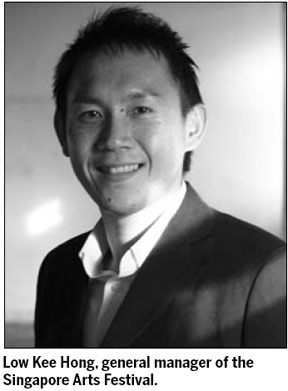 |
For example, musicians from the Singapore Chinese Orchestra (SCO) traveled to Quanzhou in Fujian for a project on Nanyin music, a traditional opera sung in the Minnan dialect that has existed for more than 1,000 years and is considered to be the oldest musical art form in China.
The music project will premiere on May 28, during the festival.
An annual event since 1977, the Singapore Arts Festival has been a national showcase celebrating the arts of Singapore's diverse communities.
Since 2010, it has evolved into a creation festival and a people's festival through a year-long participation program, com.mune, to sustain engagement with the public beyond the festival.
This year, the Festival Village will also make its return - after a 10-year hiatus - at a new site, Esplanade Park. Intended to be a key gathering point for artists and audiences, it will host free and ticketed performances that are extensions of the festival's thematic threads, enjoyed over food and drinks.
The Festival Village will also be home to the first Kids Arts Village, curated, performed and managed entirely by children.
Low says curating this year's festival has been an unforgettable experience, especially commissioning the Nanyin project.
"Going back to Quanzhou was life changing for me To see the city was interesting because it reminded me so much of Singapore, as 500 years ago Quanzhou used to be an important port city," Low says.
Hearing Nanyin music also reminded Low of the language his great grandfather spoke.
"In this performance, I am remembering because I want to find my own roots," he says.
E-paper
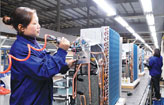
Thawing out
After a deep freeze in sales during the recession, China’s air conditioner makers are bouncing back
Cool Iron lady
Of good and evil
Build on security initiatives
Specials
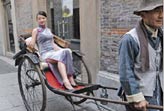
Memory lanes
Shanghai’s historic ALLEYS not just unique architecture but a way of life
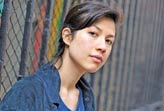
Great expectations
Hong Kong-born singer songwriter rises to the top of the UK pops.
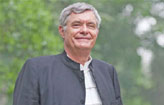
A diplomat of character
Belgian envoy draws on personal fascination to help build China ties.
